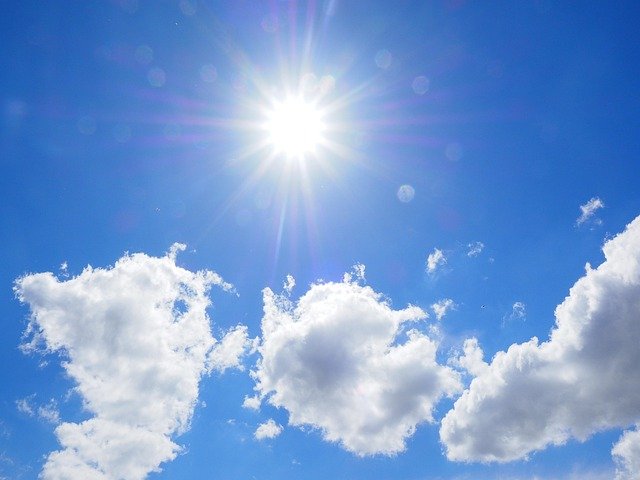As the UK steps into August 2025, weather discussions are at the forefront of national concern. Following a summer already marked by multiple heatwaves and record-breaking sunshine, many are wondering if August will bring another surge of extreme heat. Latest guidance from the Met Office suggests a dynamic weather pattern, blending warmth, humidity, and some unsettled conditions as August begins.
Current Weather Trends and What’s Behind Them
July closed with the Azores High – a large high-pressure system sitting to the southwest – continuing to shape the British weather. While this often signals steady, dry conditions, it has also left the door ajar for Atlantic weather fronts to bring showers and periods of cloud, most often affecting western and northern regions. Southeastern England, meanwhile, has remained mostly warm and bright, with temperatures frequently touching the mid-20s Celsius, peaking between 23°C and 26°C during the opening days of August.
Waves of humidity are set to build midweek, with the risk of isolated thunderstorms—especially in the south—as heat and muzziness combine. The Met Office anticipates highs near 26°C, with some muggy nights. By Friday, a more northerly airflow will usher in fresher conditions for much of the north, with the south hanging onto warmth and humidity, though heavy showers could still pop up.
Is Another Heatwave Likely?
Early August is set to be more mixed than scorching, countering some expectations for a runaway heatwave. According to BBC Weather, current models show August beginning with breezy, showery weather—particularly across the north and west—while the south and east hold onto drier, occasionally sunnier spells. Computer forecasts hint at warmer surges if high pressure dominates later in the month, but these look uncertain. The chance of temperatures bouncing over official heatwave thresholds—defined as three consecutive days at or above 25°C to 28°C, depending on region—appears slim at present.
Climate and Weather Records in 2025
Despite the lack of an imminent August heatwave, the context for this summer is extraordinary. The UK has already experienced three official heatwaves in 2025, with 11 days where temperatures exceeded 30°C. The hottest day so far was on 1July, when Faversham in Kent recorded 35.8°C—remarkably close to historic records, but still short of the unforgettable 40.3°C seen in Lincolnshire during 2022.
The Met Office’s seasonal analysis shows England running more than 1.5°C above average for much of the summer, with rainfall deficits persisting in the southeast and east. This follows an unusually dry and sunny spring, amplifying the impact of each hot spell. The marine heatwave influencing sea temperatures around UK shores is also contributing to this warming trend and might yet play a role if another hot surge arrives in August.

Expert and Official Comments
Meteorologists from both the Met Office and BBC underline that, while temperatures remain elevated due to climate changes, bursts of extreme heat are increasingly likely but less predictable in their timing. The UK Health Security Agency continues to issue alerts and emphasise the health risks of sudden hot spells, particularly to the vulnerable. Their modelling estimated over 900 heat-related deaths across England and Wales during consecutive heatwaves this summer, underscoring the seriousness of these events.
Outlook for the Rest of August
Meteorologists remain cautious. While the start of August looks mixed with some warm intervals, there is no sign of a repeat of the intense, prolonged heat seen in previous years. However, background warming trends, high sea temperatures, and recent events mean the odds of a return to hot conditions later in August cannot be ruled out. Most models suggest normal to above-average temperatures for much of southern England, but extended, widespread heatwaves are not forecast for now.
Staying Weather Aware
The UK public should expect a classic British mix for early August: spells of warmth, some heavy showers, rising humidity, and the odd thunderstorm. Any sharp surges above 28°C will likely be brief, regionally limited, and dependent on changes in wind and pressure patterns. As always, it is wise to keep up with the latest Met Office updates, particularly if you have outdoor plans or are sensitive to heat.
The story of 2025 is one of a warming trend, record sunshine, and more frequent heat spikes. While a major August heatwave is not expected at the outset, the possibility looms for later in the month. Stay prepared, stay hydrated, and continue to check credible sources for up-to-the-minute forecasts.
This pattern is a clear sign that the UK’s climate is on the move. Every summer now brings the potential for record-breaking weather, making staying informed and cautious more important than ever.
Expert Opinions and Official Comments
Meteorologists continue to underline that while local heat spikes are increasingly likely in a warming climate, the conditions required for a prolonged, nation-wide heatwave are not yet in place. Dr. Mark Sidaway, a climate scientist at the University of Reading, explained that, “This summer’s warmth is consistent with climate models that predict hotter, drier spells for England, especially in the southeast. While we’ve broken more 30°C days already this year, the trend for August is for shorter, less persistent heatwaves interspersed with unsettled spells.” The Met Office concurs, suggesting more ‘bursts’ of heat rather than anything sustained.
Rainfall, Records, and Climate Context
It’s not just heat that’s notable this August. Rainfall across the western UK has, at times, been above average, helping to replenish some reservoirs after a dry start to the year. However, the southeast remains dry, with some counties reporting rainfall totals less than half the monthly average by the month’s end so far. National agencies have not yet revisited hosepipe bans, but water companies in southern England are closely monitoring the situation.
Conclusion:
August 2025 in the UK is bringing the classic blend of warm spells, occasional showers, and localised heat spikes. While a long, intense heatwave seems unlikely, the season remains warmer than average, particularly in the south and east. Regional differences persist, and brief hot surges are still possible later in the month. Staying updated with local forecasts and official advice is the best way to enjoy this unpredictable British summer safely and comfortably.
Read More: Tarantulas: UK’s Controversial Eight-Legged Wonders

